Celebrating the Holidays During COVID: How Brooklyners Are Finding Joy This Year
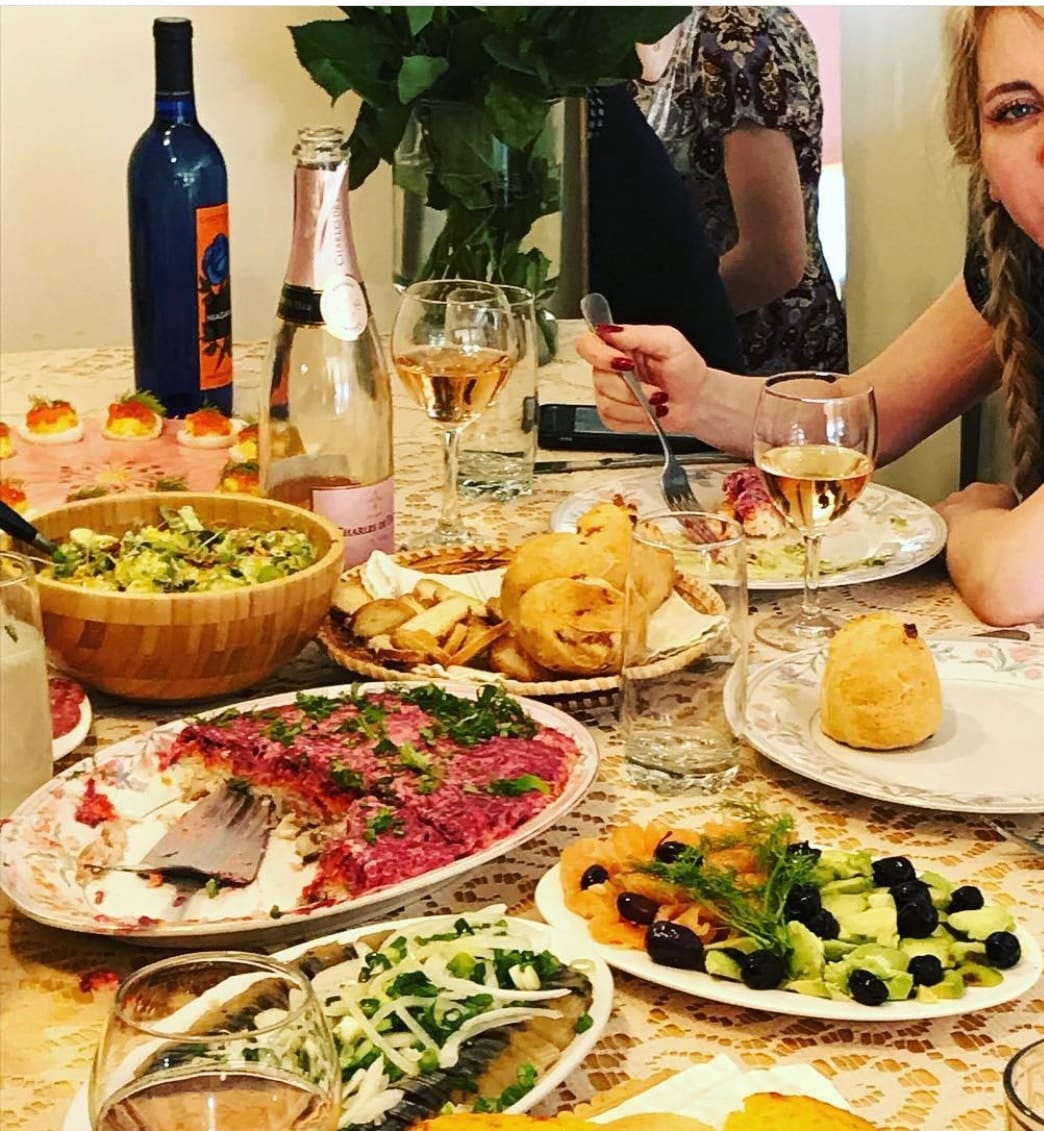
The winter holidays are going to feel different this year. Celebrations will likely be smaller, quieter, and less travel-heavy. At this point, most of us are probably used to editing our lives to comply with coronavirus safety measures; that doesn’t make it any less of a bummer. Without parties, in-person religious services, or trips to see family and friends, many Brooklyn residents are learning how to summon the usual feelings of joy, spirituality, and connection – without all of the trappings.
From glitter-filled eggs to Russia’s version of Santa Klaus, roasted goose to cookie extravaganzas, here are the plans of four Brooklyn residents.
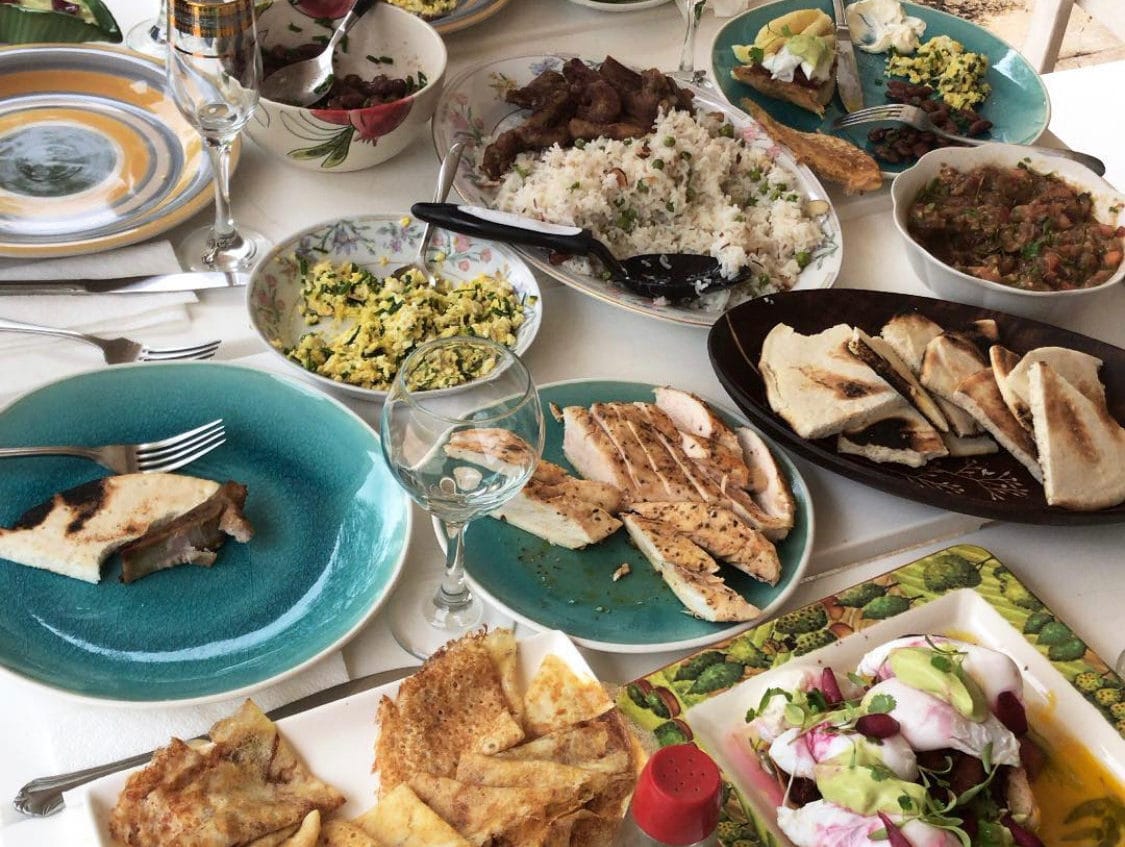
Annabel Sharahy
Annabel Sharahy is a Bed-Stuy resident and co-founder of the pop-up, Brown Butter Supper Club. She usually celebrates New Year’s twice: first with her dad, who is Syrian and Muslim, and his side of the family; and again with her mother and maternal grandparents, who are Russian and Jewish.
A Russian New Year’s Feast….and a Little Bit Of Hanukkah
“We cook a goose. I’m the one cooking everything for Russian New Year. We stalk the Russian grocery store, so we get a bunch of kielbasa, a bunch of pickled stuff, a billion different types of salads. Vodka – a healthy amount of vodka – cognac, and champagne.”
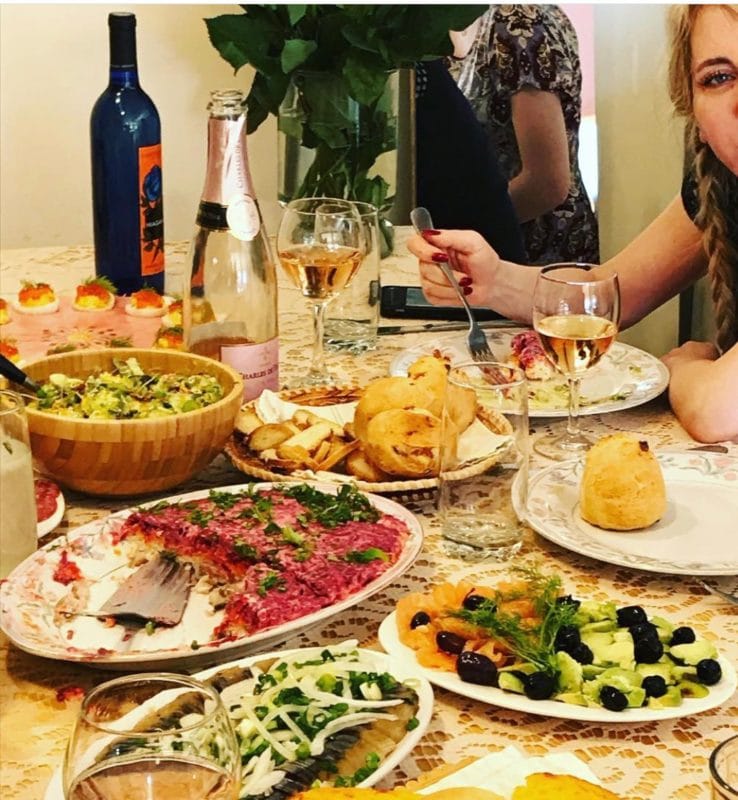
They’ll do Hanukkah as well, Sharahy said, but “not that much. We do light the menorah, and then grandpa talks about how we need to celebrate Hanukkah more. And then yells at us about it. We get chocolate coins from some relatives. And then we forget to celebrate the rest of the days.”
Ded Moroz
Sharahy’s family treats New Year’s like Christmas, she said. “We have our own Santa, who instead of being fat and red is skinny and blue. His name is Ded Moroz and instead of having reindeer, he travels using his granddaughter – she’s the princess of snowflakes – she uses her snowflakes to take him to all the houses to give kids presents.”
Celebrating During COVID
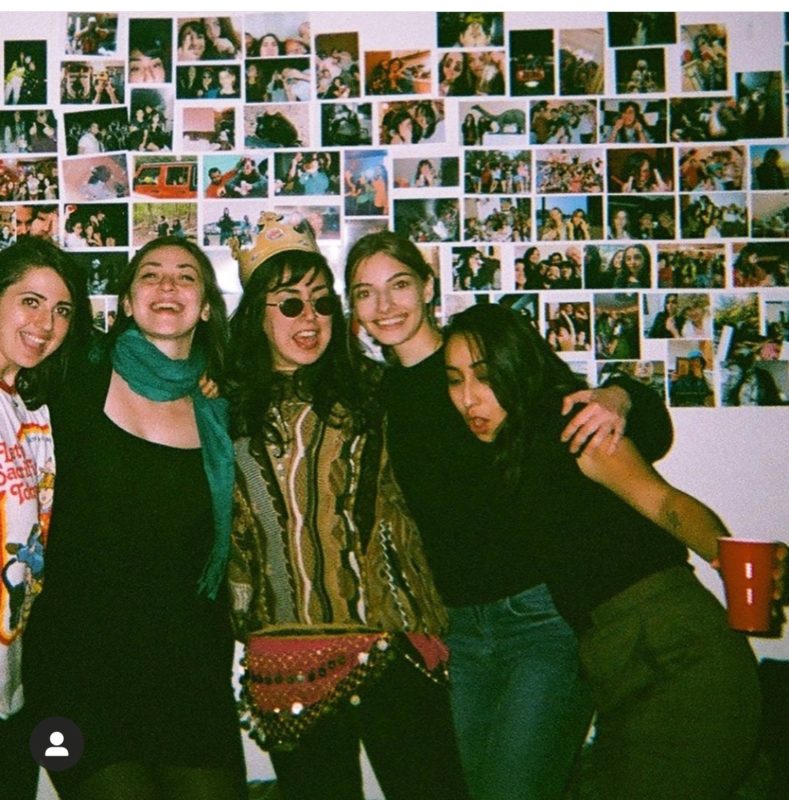
Though Russian New Year’s is typically a low-key affair, Sharahy said, “the Middle Eastern [New Year’s] celebrations, we usually invite, like, everyone, and then everyone invites their friends, and it’s this huge celebration with so much food and lots of dancing.
“So we’re not gonna do that this year. And that’s gonna kind of suck, because the best thing to pair with Middle Eastern food is the festivities, with the dancing and kissing everyone on the cheek. And to restrain from all the other stuff and just have the food – it kind of feels like there’s something missing.”
Rocco George
Rocco George is a character actor, puppet maker, and film director who lives near Prospect Park. For him, the holidays are usually spent working, or at home with his extensive collection of homemade puppets.
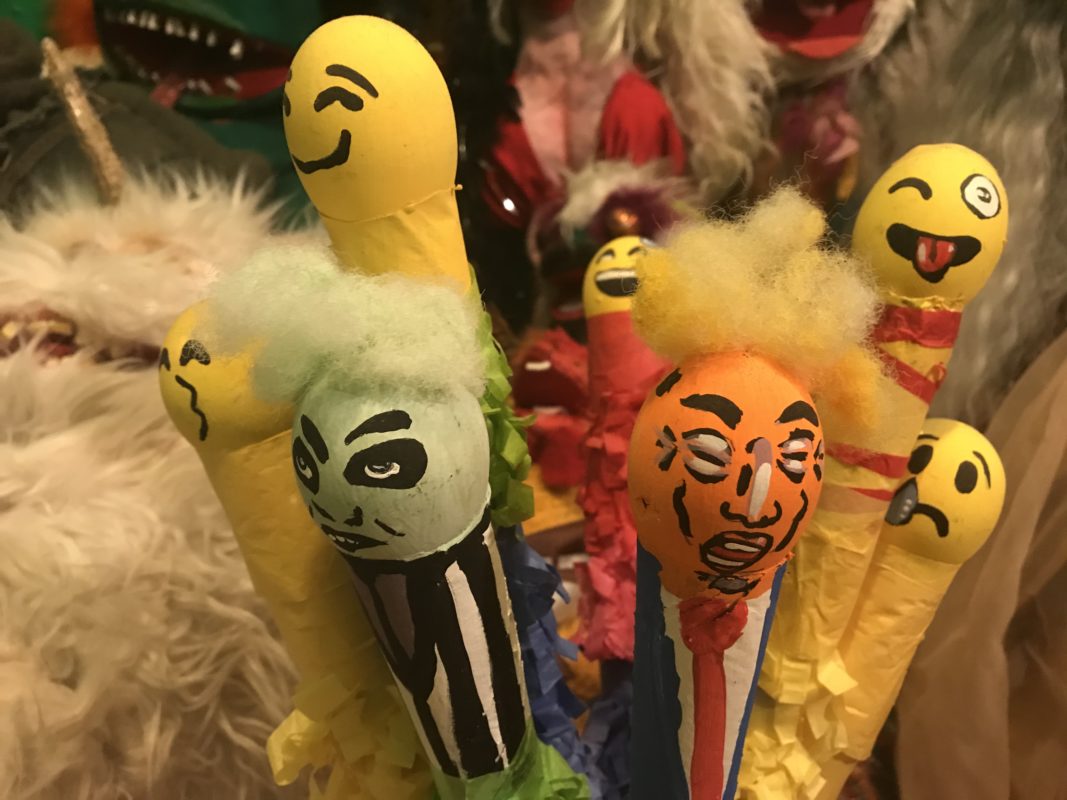
Día de la Virgen de Guadalupe
“I’m half Mexican and half Italian; I’m from Tucson, Arizona. And we didn’t do Christmas so much as we did the Day of the Virgin Mary, on December 12th.”
Day of the Virgin Mary – a major Mexican holiday, and usually referred to as Day of the Virgin of Guadalupe, or Día de la Virgen de Guadalupe – was even bigger than Christmas for George’s family.
“During the 11th, the family and stuff would get together, cook food, and everybody would get really drunk. Then at midnight we’d sing ‘Las Mañanitas’ to the Virgin Mary, and then the next day everybody is hungover. And that’s it.”
Making Cascarones
“I still make these things called cascarones. It’s an egg – you hollow it out, and you stuff confetti into it, and then you paint it. Then you crack it over somebody’s head, and confetti goes everywhere. So I always make a bunch of those.”
He typically paints them with celebrity faces, he said. “I’ve done the Golden Girls, Donald Trump, Beetlejuice.”
Dinner With Puppets
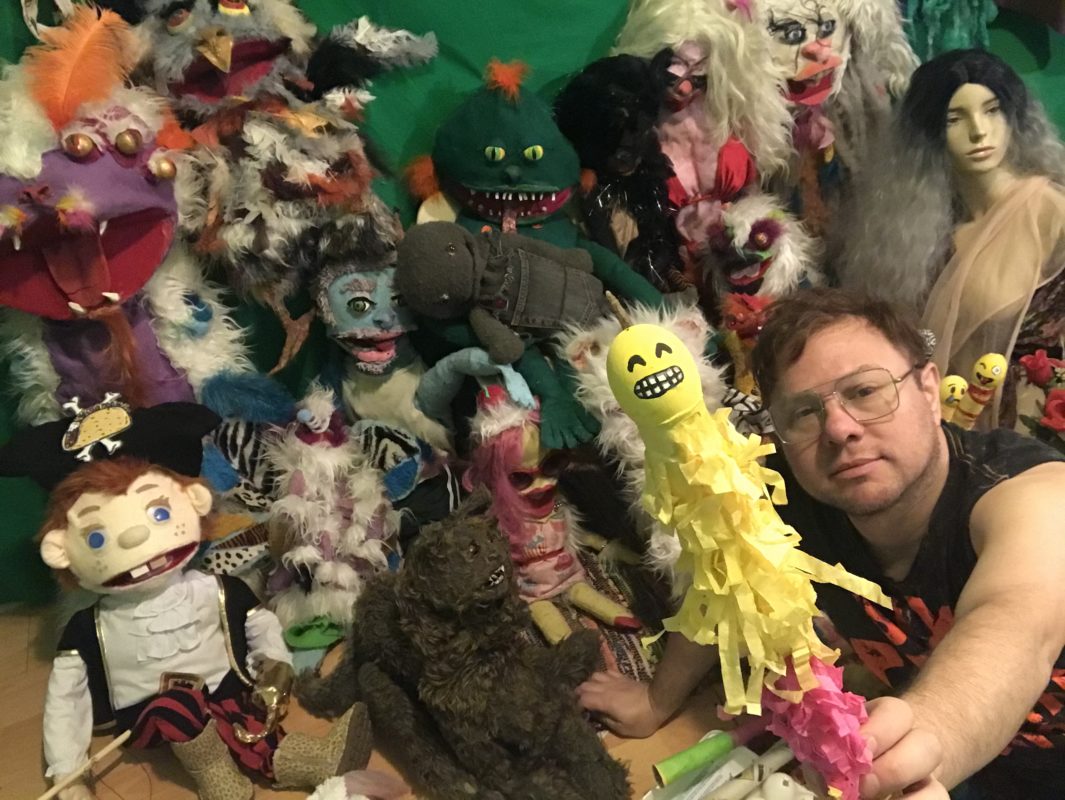
George plans to spend Christmas at home, in the company of his puppets – a collection of unique, colorful creatures and characters that George makes by hand, and which each have their own personality and quirks, he said.
“I make them for film, and people’s web series. So if they don’t keep them, I usually try to keep them because I become attached to them.”
Beverly
Whenever he wasn’t working at Jekyll & Hyde Club, a theme restaurant in the West Village, George used to spend Christmas with his friend Beverly, an actress and comedian who recently passed away.
“Beverly was an amazing cook, and she would make turkey and ham and macaroni and cheese,” he said. This year, though, “I’m doing a vegan thing.”
Rabbi Heidi Hoover
Rabbi Heidi Hoover oversees the congregation at B’ShERT Reform synagogue in Ditmas Park, and, in past years, has spent most Jewish holidays leading services. B’ShERT typically conducts a special service on the Shabbat during Hanukkah, which Rabbi Hoover would otherwise be looking forward to.
Latkes and Hanukiyot
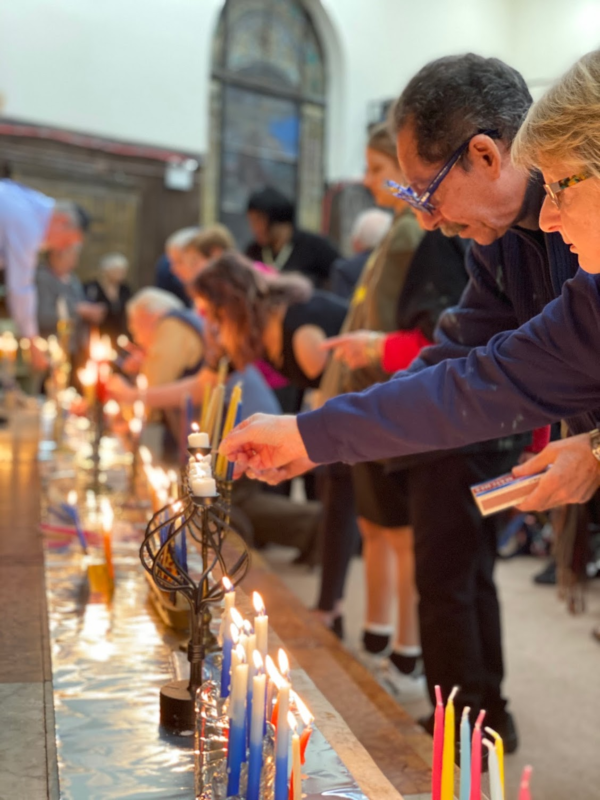
“We invite everybody to bring in their hanukiyot [candelabra, similar to menorahs] and we line them up on the bimah [platform], and we light them all and we do the blessings with them. It’s really beautiful. We do a special service that has Hanukkah music peppered throughout the service. Then afterwards we have a latke oneg [gathering].”
Without these rituals, Rabbi Hoover said, things will undoubtedly feel very different. “The service that we do in the congregation and the latke oneg are really special. And I really enjoy them.”
Connecting Over Zoom
This year, Rabbi Hoover said, celebrations will take place over Zoom, as they did for holidays like Passover. “We’re having a Hanukkah lollapalooza on the Shabbat of Hanukkah on Saturday.”
They’ll also be having a virtual candle-lighting for each night of Hanukkah, which is a first, Rabbi Hoover said.
“That’s going to maybe be a little bit more connection. That’s what’s weird about this time – we’re really missing the physical connection, but the connection sort of spiritually, online, is greater in a lot of ways.”
Two Hanukiyot
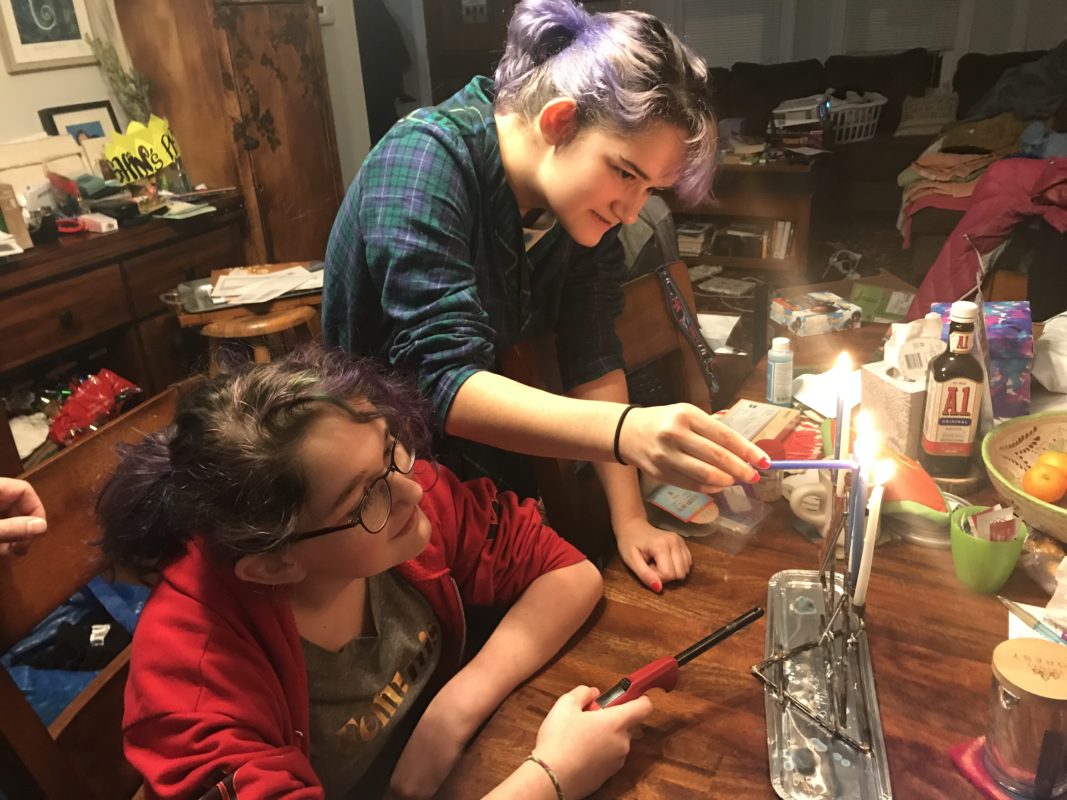
“The school of Hillel says that you light the candles starting with one on the first night and then adding a candle each night until you get up to eight on the last night. But [the school of] Shammai says, you start with eight and you go down to one.”
Instead of choosing one tradition over the other, Rabbi Hoover said, she chooses to do both.
“I have two hanukiyot, and I light one of them like Shammai and one of them like Hillel. And I just think it’s kind of cool to be able to do both of them.”
Stacy Seebode
Bed-Stuy resident Stacy Seebode cooked at Manhattan’s L’Appart before the pandemic, and currently works as a private chef. Raised in the south as a Methodist, church is usually a huge part of her holiday celebrations.
Church
“Normally during the advent season, we make grace, and then there’s a lighting of very specific candles, and each color represents something. And you know, we’re starting to prep children to get ready for the Christmas show, and none of that is happening this year. We’re not allowed to craft, we’re not allowed to gather to do any sort of choir-based things.”
Though her church reopened for services two weeks ago, Seebode said, she’s apprehensive about attending since she’ll be visiting family on Christmas. It’s a bizarre trade-off for her to have to make, she said.
Cookie Extravaganza
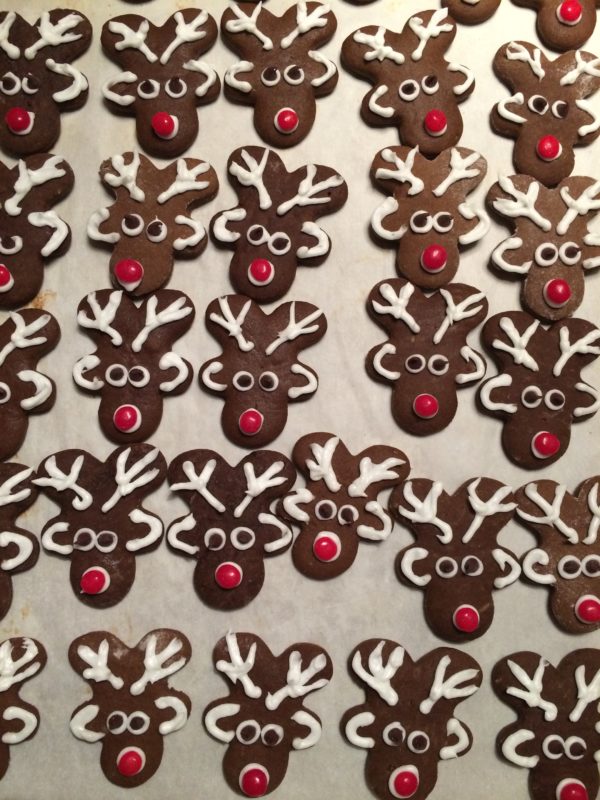
“It is an insane extravaganza, where [my aunt] starts at 6[am], I kind of meander down at 8[am] for coffee, and we do cookies until about 11pm every single day. We don’t even keep most of them – we give them out to the community. A bunch of them go to my grandma’s nursing home, we give them out to neighbors, we put them in tins.”
They challenge each other to come up with new cookie varieties, said Seebode.
“Normally in the tradition, one of the two of us brings a new cookie. And if we like the cookie, the cookie can be introduced into the repertoire for the years to come.”
Gratitude and Peace
“I have a lot to be grateful for. Everybody I know that had COVID has recovered – and I know a lot of people that have had COVID,” Seebode said. “And in general I’m not bummed, because I’ve got a very strong sense of gratitude and peace, really. And my prayer practice has gotten stronger than it’s ever been in my entire life. So that’s been really good – I don’t feel like I’m missing out.”




